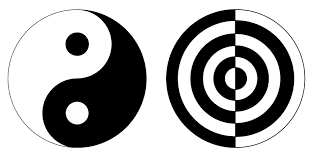Best Feng Shui Books to Buy in February 2026
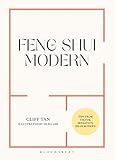
Feng Shui Modern



Move Your Stuff, Change Your Life: How to Use Feng Shui to Get Love, Money, Respect, and Happiness
- TRANSFORM YOUR SPACE: UNLOCK LOVE, WEALTH, AND HAPPINESS TODAY!
- PRACTICAL FENG SHUI TIPS: EASILY CHANGE YOUR LIFE WITH SIMPLE MOVES.
- PROVEN METHODS: BOOST YOUR SUCCESS AND WELL-BEING INSTANTLY!


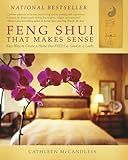
Feng Shui that Makes Sense - Easy Ways to Create a Home that FEELS as Good as it Looks
- SIMPLE FENG SHUI TIPS FOR A HARMONIOUS AND INVITING HOME.
- TRANSFORM YOUR SPACE TO BOOST WELL-BEING AND ATTRACT POSITIVITY.
- PRACTICAL ADVICE FOR EFFORTLESS HOME UPGRADES THAT ENHANCE BEAUTY.


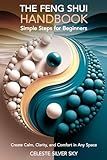
The Feng Shui Handbook - Simple Steps for Beginners: Create Calm, Comfort & Clarity in Any Space


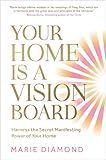
Your Home Is a Vision Board: Harness the Secret Manifesting Power of Your Home


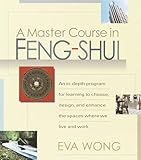
A Master Course in Feng-Shui: An In-Depth Program for Learning to Choose, Design, and Enhance the Spaces WhereWe Live and Work
- QUALITY ASSURANCE: EACH BOOK IS INSPECTED FOR GOOD CONDITION.
- AFFORDABLE PRICES: SAVE MONEY ON QUALITY LITERATURE WITH US!
- ECO-FRIENDLY CHOICE: CONTRIBUTE TO SUSTAINABILITY BY BUYING USED.


I’ve developed an interest in the age-old study of Feng Shui since Bob Grant, one of our customers, corrected me on the pronunciation. Now I know it’s pronounced "fung shway". I knew enough to be dangerous about the subject so I thought I might investigate it further. Feng Shui literally means "wind and water". It’s an ancient Chinese study of the natural and constructed environment that surrounds us and how we can improve our relationship with these surroundings to enrich our everyday lives, prosperity, health and well-being. The depth of the study is enormous but very interesting. You’ll find more on Feng Shui inside.
Feng Shui is based on the principles of Yin and Yang. The true symbol of Yin and Yang is orientated just as it is in the above illustration with the left, white half ascending and the right, black half descending.
Yang is the left. This half represents heat rising. It is heading East - think of the sun rising in the East. Inside Yang is a seed of Yin waiting to descend into darkness. Yin is the right half, the dark half, night. The sun sets in the west. The seed of Yang is inside Yin waiting to ascend into light.
If it were a 24-hour clock, Yang reaches its lightest at noon and Yin reaches its darkest at midnight.
If it were a calendar of all 12 months, Yang reaches its warmest in July and Yin reaches its coldest in January.
If it were a compass it would actually be upside down - the top of the symbol is not North, it is South. Yang is in the East and Yin is in the West. Yin is in its fullest in the North.
The underlying factor in all of these analogies is that Yin and Yang represent constant change, just as time, seasons and directions change and it is balance of the two sides, not the fact that they are opposite.
The true Feng Shui, or Chinese Geomancy, is based on repeatable calculations and based solely on the five elements - Fire, Earth, Metal, Water and Wood. It is how these elements interact. It is the placement of these elements in our surroundings.
The following will help us get a good perspective of how the five elements relate to each other:
- Wood burns, producing Fire
- Fire leaves behind Earth
- Earth is the source of Metal
- Metal melts into liquid (or Water)
- Water becomes nurishment for Wood
Look at the way seasons relate to the five elements:
- Spring gives way to new Wood
- Summer brings Fire and heat
- Autumn cools like Metal
- Water freezes in Winter
Feng Shui should not be confused with any kind of religion. It is a way of arranging one’s environment to take advantage of good "chi" or life energy.
